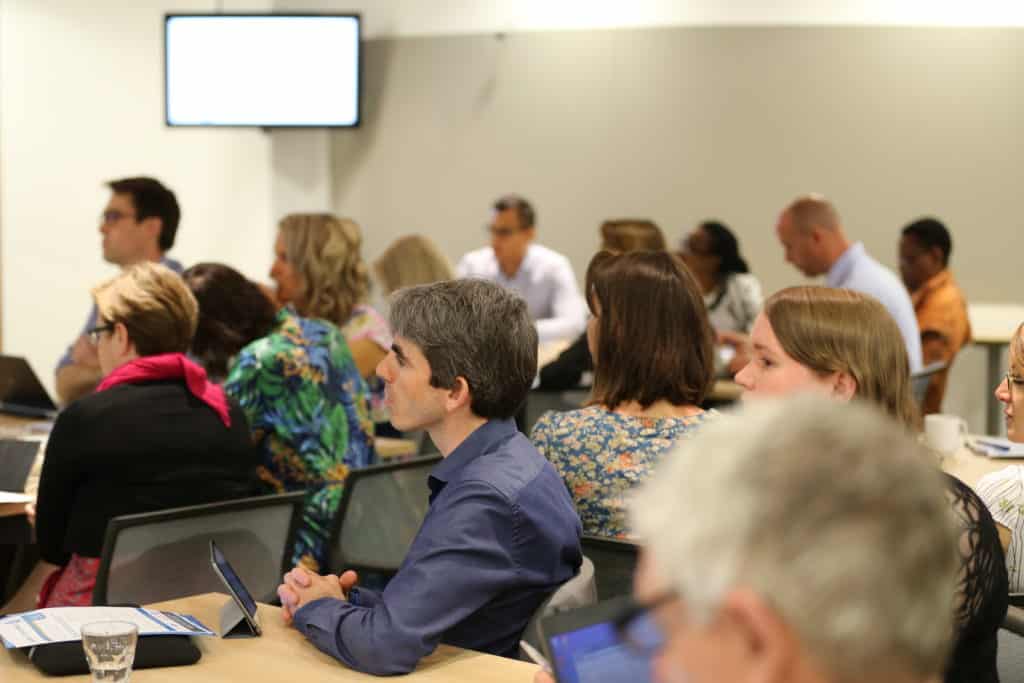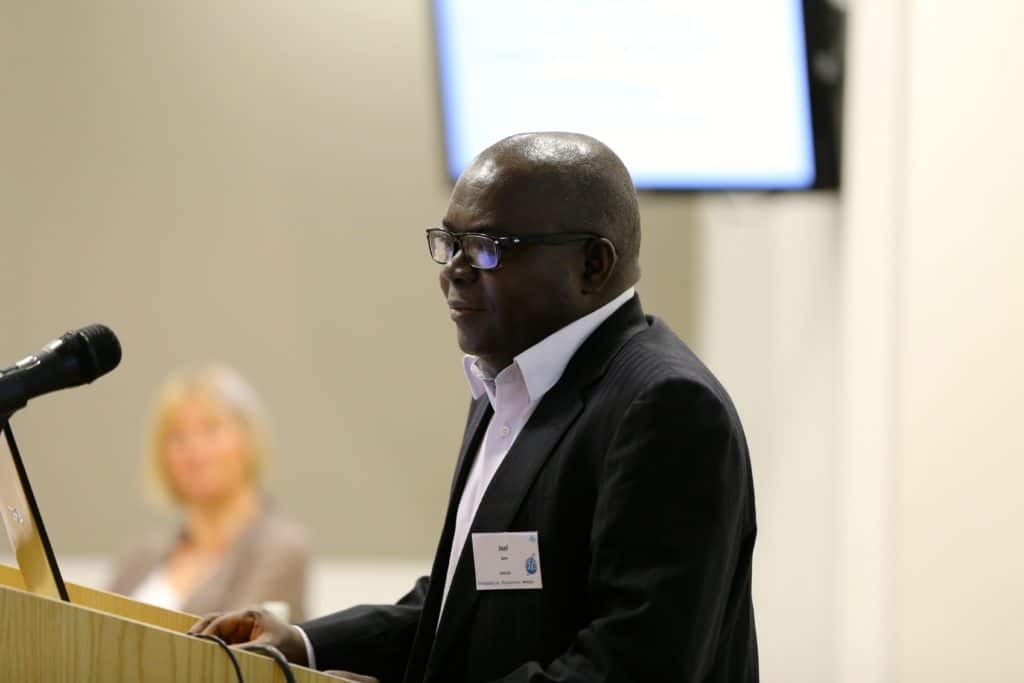
Siân Harris is Communications Coordinator at INASP. Previously she was editor of Research Information magazine for almost 11 years and a writer and editor on several publications at the Institute of Physics Publishing. She has also worked as a freelance science and technology journalist for many others publishers, including SPIE, Institute of Engineering and Technology, Royal Academy of Engineering and Nature Publishing Group; authored white papers on open access on behalf of SAGE; and written case studies for several major companies in the engineering and healthcare sectors. She has a PhD in inorganic chemistry from the University of Bristol, where she also worked part-time for the university library.
The Sustainable Development Goals (SDGs), a set of far-reaching goals towards reduced poverty and a fairer and more sustainable world over the next 15 years, came into effect at the start of 2016. They have much to say for anybody working in international development but also for anybody working in the areas of research and research information. The goals are intended to tackle key issues for alleviating poverty and addressing inequality – and in issues such as climate change, agriculture, clean water and health, to name a few, there is a clear role for research and researchers.
The 17th and final SDG – Strengthen the means of implementation and revitalize the global partnership for sustainable development – brings together the goals with a set of targets for how strong partnerships can help achieve sustainable development.
As the UN website explains: “A successful sustainable development agenda requires partnerships between governments, the private sector and civil society. These inclusive partnerships built upon principles and values, a shared vision, and shared goals that place people and the planet at the centre, are needed at the global, regional, national and local level.”
The concept of partnerships echoes strongly with the vision of INASP and the many people and organizations that we work with around the world, a vision for a fairer research system, where research and knowledge can play a central role in development.
The importance of good partnerships is exemplified in the development of our e-resource access programme. Since INASP was formed nearly 25 years ago, scholarly publishers have had a special role to play in enabling free or appropriately discounted low-cost access to research information for developing-country researchers, through INASP and its member consortia, as well as subsequently through the Research 4 Life and EIFL initiatives.
We value the support of our publisher partners and enjoy the opportunity every year at the Publishers for Development conferences to bring together international publishers and southern librarians and researchers (this year, there are meetings on 28th June and 13th September) to discuss the value and practicalities of the responsible provision of research literature.

Publisher support is very important and has made a significant difference to many researchers over the years. However, access is not enough. There is a need for people to have appropriate information literacy and IT infrastructure to be able to access and use such information, as well as the perennial issue facing librarians the world over of needing to communicate to researchers what information is available. Through its various activities, INASP has been attempting to address these issues.
More recently another issue has been emerging that puts SDG 17’s partnership vision centre stage.
For researchers and research from lower and middle-income countries to take a full role in global scholarship discussions – and, in turn, to contribute to their own countries’ development – the research systems in those countries need to be sustainable. They need to move from a situation where international funders make the decisions to a situation where the countries decide for themselves about their research priorities.
In the case of e-resource access, INASP’s intention has always been to shift from INASP playing an intermediary role to one where, at an appropriate pace, library consortia and publishers talk to each directly. We have been working to ensure that this transition goes as smoothly as possible for all concerned.
Two years ago, through discussions at our Publishers for Development (PfD) conference, we developed the INASP Principles for Responsible Engagement for Publishers. They address experiences that we hear about from library consortia of situations where the direct discussions have been difficult, while recognising the need for publishers themselves to remain sustainable and financially viable. Some common themes arise: publishers moving too fast with, for example, price increases; publishers talking to governments or individual universities rather than being aware of the existing information arrangements in a country; short-term deals rather than long-term plans.
And it’s not one-sided; we have also heard from publishers about frustrations with poor communication or late payment, for example. These things also require good principles and practice and are things that we are working with library consortia on. Each year, we see more of the consortia understanding the need to make timely payments, and to keep in touch when there are problems in transferring these payments.

For principles to be effective, they need to be put into practice. This is where good partnerships are so important and we always encourage publishers to talk to us about ways they can build deeper relationships with southern library consortia. One recent example comes from Cambridge University Press (CUP), which invited INASP to address a staff development event and then contacted us with a desire to do some training in Africa about research information use. This is something that INASP has many years of experience in through our work with library consortia so we were able to advise the publisher on effective ways to do this and to put the team in touch with our network of trainers in Uganda and Ghana. CUP will be sharing some experiences from this work at the June PfD conference. Other publishers have also approached us about doing similar work.
One of the key aspects of the INASP Principles is helping libraries to be able to make medium to long-term plans. Budgets in developing countries are often very small and vulnerable to external factors such as political changes or currency fluctuations. Publishers can help library consortia in their planning by not making any sudden changes in pricing or other conditions. My colleagues in the access team have been really impressed this year by how many publishers have already got in touch with INASP to tell us what their plans are for 2017. Such things can seem quite small but they make a big difference to the ease with which library consortia can supply appropriate information to their countries’ researchers.
As Joel Sam from Ghana, who was one of our speakers at PfD last year, explained: “There is a need for us, as a research organization — as a university coming from a developing country — to engage more with the publishers. There has been a lot of misunderstanding on both sides [and] we realize there is a need for transparency, openness and for us to work together.”
This post hopefully gives you a flavour of how publishers and developing-world consortia can partner. But don’t just take my word for it; come along to the Publishers for Development conferences and hear southern researchers, library consortia and publishers sharing their stories themselves – and contribute to discussions about how strong international partnerships in research communication can contribute to all the Sustainable Development Goals.
This year’s Publishers for Development conferences are on 28th June in Oxford and 13th September in Heathrow (the day before the ALPSP conference). You can also see this video to get a flavour of last year’s discussions and keep up-to-date with discussions by following the #pfd2016 hashtag on Twitter.



